Noor Tagouri is a journalist, storyteller, and speaker known for her groundbreaking investigative work and advocacy for nuanced, underrepresented narratives.
As a Libyan-American journalist, she has made a name for herself by challenging traditional storytelling norms, blending investigative journalism with deeply personal self-inquiry. Whether through her acclaimed podcast series REP, her documentary work, or her commitment to revolutionary representation, Noor’s approach to storytelling is both introspective and global. She believes in the transformative power of truth-telling—not just in exposing injustice but in reshaping how we see ourselves.
In this intimate conversation, Noor sits down with her husband and business partner, Adam Khafif, for a deeply personal discussion on storytelling, solitude, and self-investigation. Conducted in a cemetery—a sacred space for reflection in their relationship—the dialogue captures Noor at her most unfiltered and vulnerable, touching on everything from the writing process to the importance of being truly free in storytelling.
This exchange reveals the depth of Noor’s philosophy—that storytelling isn’t just about documenting events; it’s about understanding oneself, confronting fears, and making space for others to do the same.
Photographed by artist Hassan Hajjaj-Larache in Tunisia
Mural art and Noor’s wraparound by eL seed
Intro by Cynthia Jreige

On Reflection, Silence, and Creativity
Adam Khafif:
Alright. Hello, Noor.
Noor Tagouri:
Hello. What’s your name again?
Adam Khafif:
So, we’re doing this JDEED cover interview from a cemetery, which is our favorite place to go walking. Usually, phones aren’t allowed on our walks—only for special occasions. And since I’m your business partner and life partner, I figured I would use my privileged access to get you in your most reflective state. And, of course, it’s a cover interview, so naturally, an announcement is due. Congratulations on selling your very first book.
Noor Tagouri:
Oh, wow. We’re sharing that news in this interview.
Adam Khafif:
It’s a cover. We gotta give them some juice.
Noor Tagouri:
I trust your creative direction. I actually didn’t know if—or when—I was going to share that news. I don’t know. I just kind of wanted to protect it for a little bit, but I think that sharing the news is probably a great way to hold myself accountable and also to receive people’s light and curiosity around it.
Adam Khafif:
So, I definitely want to talk about that, but first, I’ll start how my favorite interviewer would start an interview. Noor, how is your heart today?
Noor Tagouri:
I always feel a type of way when people ask it back. I’m like: ‘that was a one-way question.’ It wasn’t for you to ask me back, which is so silly of me.
My heart is expanding as we speak. We’re sitting in the cemetery, and the last time we had a phone out here was when I wrote the final words of REP a couple of years ago. I read off the words from the scripture on the memorial that we’re sitting at right now. So, whenever I’m here, my heart feels expansive and reflective.
Adam Khafif:
Thank you. We’ve mentioned a few times that we’re in a cemetery, which, to us, is normal, but I think it’s jarring for a lot of people to hear that we just regularly walk in a cemetery. And, like you mentioned, this is where you reflect, download, and write a lot of your stories. What have you learned about being in silence and being with yourself?
Noor Tagouri:
Well, it’s interesting because you’re asking me this, and you’re the reason I really ever met silence and solitude. Earlier in our relationship, you would often talk about needing space and alone time. I have always been surrounded by people—whether it’s my family, being on the road, or in the newsroom. Noise felt like my comfort.
Eventually, when we got the cabin—just for that creative energy—I think you told me I needed to go there and spend time so I could work on our last investigation. At first, I was afraid of being alone and spending time by myself. I didn’t know I could have so much fun in my own company.
I had no idea I was going to start painting in those cabins. I had no idea I was going to dance, cry, or hug a tree. I never expected to develop these rituals and routines that could have only come from full solitude. As I say this, I reflect and wonder: Was it only because of solitude that I was able to receive these? Or is it that sometimes our vision is blurred by the fear of being perceived, the fear of being judged, or the fear that comes with having to perform for other people?
As much as I’d like to think that I don’t necessarily do that—or that I’ve worked hard not to—I think my time alone has reminded me how free I naturally am. And knowing that, understanding what that actually looks like, helps me know what I’m working for and towards.
Adam Khafif:
What have you learned about yourself when you’re not being perceived?
Noor Tagouri:
I’ve learned how wild and weird I am. And how primal and feral I can get. And that the act of physically moving your body to take up space is so necessary for everyone, but especially women. We’re so conditioned to be put into specific boxes or containers, into limiting spaces with so many arbitrary rules, verbalized and nonverbal that are put onto us. And so the physicality of manifesting the wild, the primal, the feral, the open, the weird, is so comforting. I love to know that still exists in me. I remember it sometimes from when I was a kid, and I think that not being perceived in that space has really helped me meet is the reminder of who I’ve always been.
Adam Khafif:
And what is that?
Noor Tagouri:
Just like a really big, bright, blinding light. There’s a painting in my cabin that says ‘I want to be a light.’ It’s a painting that I painted. I want to be a light that shines so bright that others can’t see where that light is coming from, so they have no choice but to believe it’s theirs.
Adam Khafif:
Whoa... When did you make that and why?
Noor Tagouri:
I made it sometime last year and the why is just that whenever I take out a canvas in that cabin, it tends to be words that want to come out. They’re these kind of potent reminders that I can keep in my back pocket. Sometimes when I journal or when I write, I just look at the dozens of canvases that are lying on the floor, that are covered in words, and then my eyes will dart to one of the canvases and I’ll know that that’s what I need to hear that day. And so I guess I painted it so that I could remember it right now.
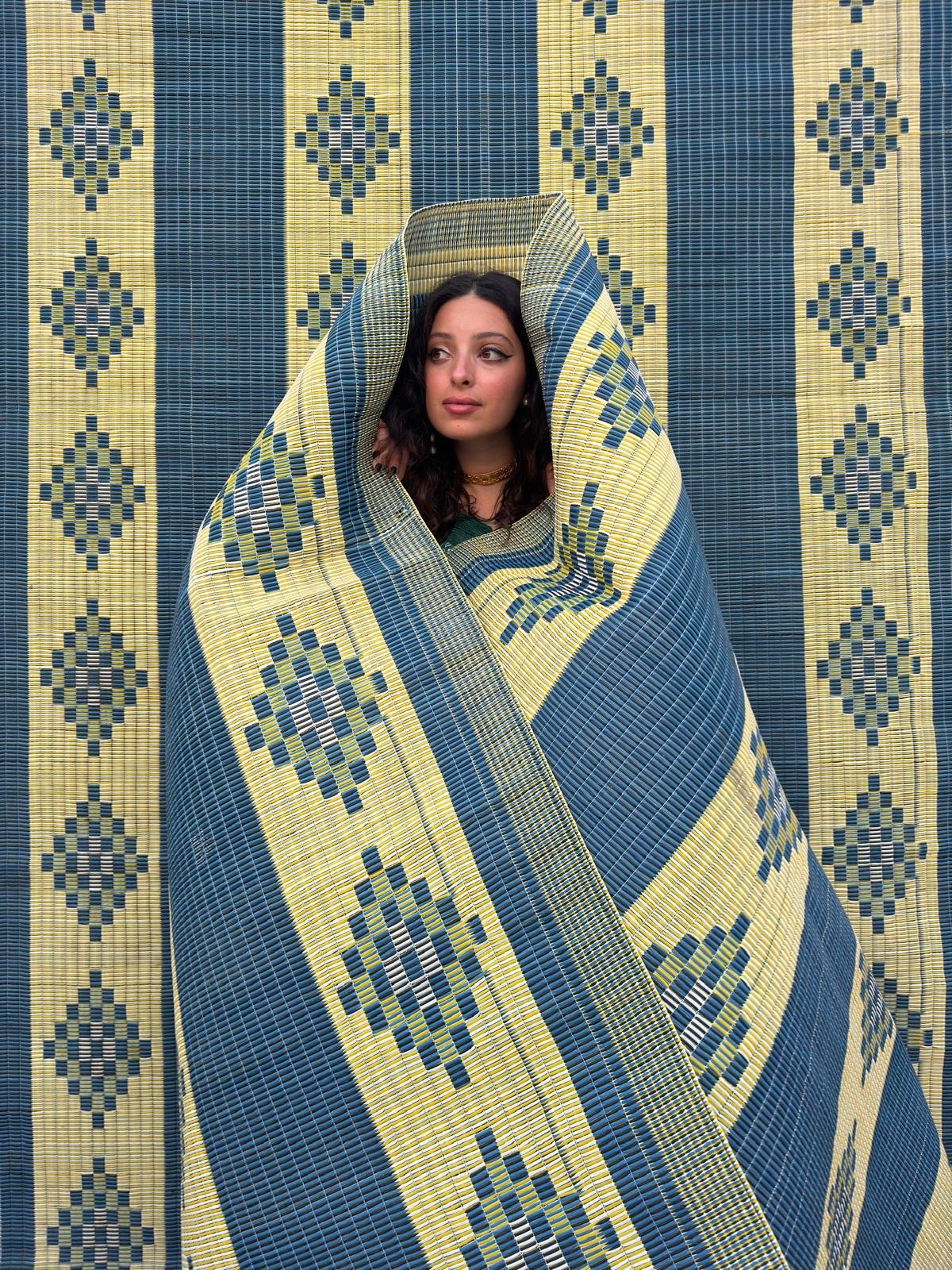
Adam Khafif:
Your paintings are really intuitive, and I feel like that’s how your storytelling also shows up. When you go through the process of creating your painting, do you notice any parallels in how you put together your stories?
Noor Tagouri:
That’s a really good question. I think the reason I’ve been painting words, and questions, and downloads is because I can’t move the paintbrush too fast and so, I have to slowly and almost luxuriously receive the download and honor it so much that I’m putting color to it on a blank canvas. I think that the parallel is that they’re interconnected. I think that everything that I ever painted in that cabin has always shown up somehow in whatever work I’m doing at the moment, whether it is the podcast, whether it’s working on the book or...how many times have we had one of our AYS (At Your Service) Clubs where I get on and before I even say hello, I open with a download that I got, that I painted on a canvas? It’s just a way to integrate. I could tell you a lot of the phrases that I have on those canvases, and I think that they just make them so much more memorable because I have to put color to them.
Adam Khafif:
Do you have anything you want to paint?
Noor Tagouri:
I love that you asked that question because it makes me feel like I can say that I paint, and I’ve been having a really hard time liking saying that out loud because it’s not like I think that my paintings are so good, but I love them so much. They mean so much to me. There’s a series of paintings that I’ve really, really, really wanted to pursue but perhaps in partnership with a really cool makeup brand (so if you’re reading this shout out um...) (ok Noor, we want to know!)
I want to paint a series of canvases using red lipstick that ask really hard questions.
Adam Khafif:
What’s an example?
Noor Tagouri:
Did our grandmothers have orgasms?
Adam Khafif:
Yeah I didn’t really prepare to transition between questions from that. How do you think people respond when they see questions like that and others that I’m sure you have in the bank?
Noor Tagouri:
I don’t even know if I would have the courage to put that question to a canvas anytime soon, maybe hiding it in a print issue of an interview is okay, but it’s interesting because those questions come up a lot in the safe container of the cabin; I can think about them, I can ask them, I can dance with them, I can ponder them. I’ve even done a live painting on Instagram where I had people send hard questions they were asking themselves, and then I painted to those questions. The canvas ended up being just a release of the emotions that they were sharing and so, I can only think about people who have that level of courage, who have those questions that are burning through their hearts as well.
And other than that, it’s like my vision, my anxiety, is overwhelmed with the idea of the men in our family, the fathers, and what they would think, because I really actually love pushing the envelope; I love saying the weird, hard thing out loud.
Adam Khafif:
Do you love pushing the envelope, or do you love exploring questions that just happen to push the envelope?
Noor Tagouri:
I don’t know. I’m just going to go with the flow. I really do think about all of the questions I ask, and I wish they could—no, I don’t wish—but it would be easier I’m sure, if they just popped into my brain and I could go, ‘Huh?’ and never think about them again. But that’s not how questions meet my body; they gnaw at me, keep me up at night, repeat themselves, and then get louder. It almost sometimes feels like I don’t have a choice, but I accept the challenge valiantly.
Adam Khafif:
I think that’s really brave of you, especially since it seems like it’s the opposite of what is taught in journalism and storytelling, because following a question can take a long time and it can often not lead to certain answers, and I think those two things hand in hand don’t work well with a traditional storytelling landscape. So, how did you discover that for yourself when you were running between stories as a journalist? How did you learn that it was something you could do?
Noor Tagouri:
I was always really annoyed by the traditional approach to journalism in radio and television. You’d have to tell multiple stories a day, and you’d only have two to three minutes to tell each one. You’d get your assignments, and then you’d have to turn them around in just a few hours. I had this deep frustration that the approach to telling stories felt so inhumane—it didn’t actually serve any purpose but to fill time on air.
I’m not sure if that’s true, but I think it’s true. So many times, we would just get police press releases and then regurgitate them on air. The only person you would really talk to was the police spokesperson, and we now know—even without saying much—why that’s so problematic.
Eventually, I found the story I just couldn’t stop thinking about: the Forest Haven story. It was about an institution for people with disabilities and one of the worst cases of medical abuse in U.S. history. I knew that story needed time. I needed to investigate, find people, do the research. That story set me free because I realized that since I didn’t owe anyone the story, I could take my time.
It actually only took about three or four months to fully develop and produce the documentary, and I felt I did it with integrity. It built so many relationships and was healing for the people I found who had been abused. I realized then—oh, there is another way.
Shortly after that, well, days after it came out, I formally met you. And then shortly after that, I helped start a documentary team at a digital news company in D.C. That happened to be right where I was living—so miraculous.
Adam Khafif:
I think a lot about that Forest Haven story, especially in the context of fear in storytelling today. What are we actually afraid of losing? Why are we so afraid to tell the hard story or to ask the harder questions?
Noor Tagouri:
I don’t know. I think most people don’t think they’re afraid—especially if you’re pursuing journalism. You already assume you’re willing to take risks.
There are so many types of journalism, though. I feel like I need to clarify that because I haven’t worked for a mainstream news outlet in years. I have so much respect for people in that 24/7 news grind, but I just couldn’t do it anymore. My body couldn’t take it anymore. I feel like my skill set is better used in the way I approach storytelling now—it feeds my soul more. That was really important.
I don’t think it’s just about journalism, though. There’s a societal fear of asking hard questions because we are so filled with shame. A lot of people think they’re the only ones asking certain questions, or that they’ll be punished for asking them. Many of these questions feel hard to ask because of the socialization or indoctrination we’ve already been through.
On a journalistic level, if people fear asking hard questions, it’s often because they’re literally fearing for their lives. Not everyone wants to die for a story. These things take time. Sometimes, when you follow a specific story, it creates an energetic movement in your body—maybe you have a deeper connection to it. That doesn’t mean the story has to be about you, but what I’ve found is that I’ve always had deep connections with every single story I’ve told. That means it changes something in me. And I think a lot of people are afraid of change.
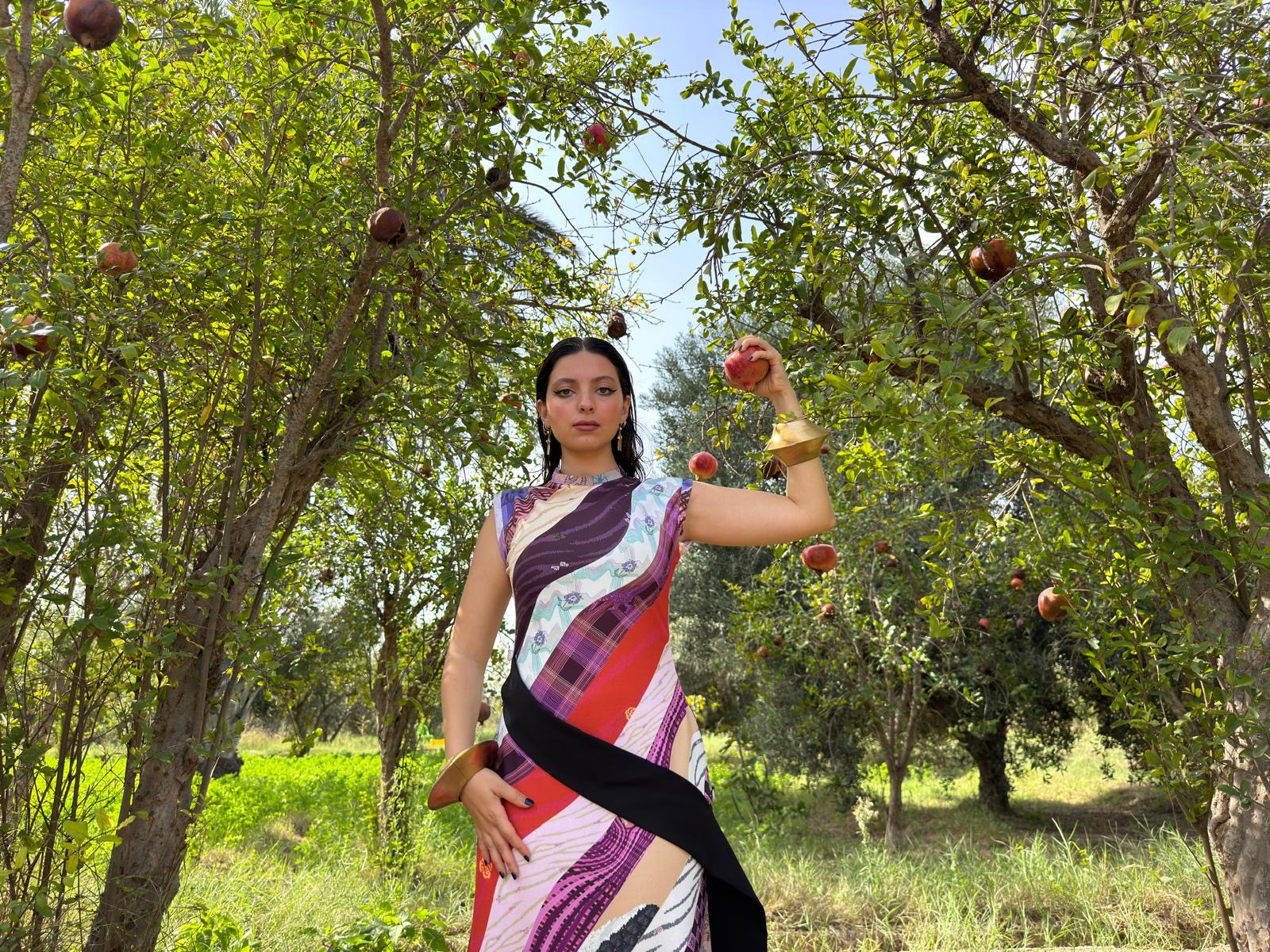
Adam Khafif:
Yeah, I definitely feel that; I agree. I also think that we just witnessed, and are witnessing, what many human rights organizations are calling a genocide in Palestine, and we saw how the media failed the Palestinian people. Many media outlets chose to either tell stories selectively or stay silent to stay safe.
There are these moments where you are confronted with a decision—you can’t avoid a topic. A lot of fear comes up. We were reached out to by multiple people who were having difficulties in their organizations or struggling to tell stories around this genocide. You can see the paralysis, and you can hear it in their voices. So, what’s really at stake when we choose comfort or safety over truth? What is our responsibility? What does it mean to use our entire capacity versus prioritizing our safety when it is literally a matter of life or death? When you can see that media can cause and perpetuate war and violence?
Noor Tagouri:
I think that the clearest way I can answer that question is: How badly do you want to be free as a person?
That’s what it really came down to for me. When I worked on the story about public opinion and Palestine with Bella Hadid for REP, I didn’t sleep for two weeks. I was having so much anxiety. Bella was also super anxious about the interview coming out. We didn’t even know until the morning of the interview if she was going to feel comfortable enough to do it. There was a lot at stake with the interview and with the episode we did, but I think we pulled it off beautifully.
It has actually been a resource in the last year and a half for people who want to understand the historical context of why this has been such a huge ‘taboo.’ And I put ‘taboo’ in quotations because it’s not actually a taboo—you can’t make people a taboo. But how did we get to this place in society and culture where some people can’t even say the word Palestine?
I can dissect why I think the media, the system, and the industry of journalism led to this—how people decided what they would or wouldn’t say. But at the end of the day, the thing I kept thinking to myself was: How badly do you want to be free? Because if you see something that you would traditionally talk about in any other context, but you’re too scared to speak on it, then you have to ask yourself: Are you free?
I know that when I say this, people react very viscerally. They say, ‘Well, you know, you can’t always be free.’ And hey, listen—I’m not saying you have to. I’m not saying you have to prioritize being 100% free. I don’t know if any of us will ever be fully free. But my journey is so wrapped up in freedom.
That entire experience of feeling super anxious about the interview and whether iHeart was going to let it come out—which, thank God, they did. Nobody hesitated, nobody said anything negative, they were completely supportive of our choices. That journalistic work helped me prepare for being unequivocally clear about how I was going to speak about the genocide today and how I spoke about it a year and a half ago.
It’s right there—you can see a real-life example of how investigating a story and my relationship to it made me stronger. In that episode, I started by recalling how early in my journalistic career, a Palestinian colleague in radio told me: ‘Never talk about it, or it will jeopardize your position at the company.’ I didn’t understand what that meant at the time, but there was always this fear—this knowledge that speaking up would lead to punishment. Now, I look at where I am and think, Oh, okay. If you’re not afraid to be punished—because you trust that you will be okay and that you will be guided to where you need to be—then you are a little bit more free than you were yesterday.
"But how did we get to this place in society and culture where some people can’t even say the word Palestine?"
Adam Khafif:
I know I asked about storytellers specifically, but I think it always comes back to those of us consuming stories and how we process this information. One of my favorite things you’ve ever told me came at a really hard time when you were producing I’m Sold in America, which investigated the sex trade in the U.S.
You told me that journalists are always ‘on’—or that journalists turn it on so that everyone else has the option to turn it off. When I say this back to you, what do you feel?
Noor Tagouri:
It’s funny because I knew exactly what you were going to say as you started the question, and I also literally mentioned this to someone a couple of days ago. Reflecting on it, I feel that it’s 100% true for so many people in our industry. And I feel like a huge part of the chapter that I’m in right now is: ‘I don’t want to martyr, and I don’t want to hurt myself’. Now that my actual health has been impacted by this, I am so okay with slowing down and, when I’m at capacity, taking a beat and doing what I need to do to get back into my body and to feel okay.
And oh my god, it’s been so non-stop with this process of really just—I’ve called this ‘The Great Recalibration,’ and I just feel like I’m constantly recalibrating. I mean, since I’ve told you that phrase, which was probably like seven years ago now, I am still recalibrating from that experience. And so, journalists, storytellers, truth-tellers, people who barely know what’s going on in their lives—bear witness. They do this all the time, and I think we saw people do that over the last year and a half. And there are serious, serious consequences that come with that. That doesn’t mean don’t do it; that just means building the best armor you possibly can around protecting your body, your mind, and your health so that you can best be of service when it comes time to bear witness again.
Adam Khafif:
Yeah, and I think that takes a certain type of courage to take a step back from work, which we associate with productivity. And as journalists, the work itself is associated with courage. And to sit in silence, or to take a break, or to engage in self-care is its own form of courage. So how has bravery evolved for you?
Noor Tagouri:
That’s a beautiful question. I think the idea of bravery has really been flipped on its head for me because I think the definition is different for everyone. There’s the bravery that we can perceive about other people and then there’s the bravery that you have to engage with for yourself, and that is almost impossible to explain to others. I can’t help but think about my experience with hijab and hair and how there’s this deep cringe that can come with somebody who’s not familiar with this experience saying ‘oh wow, you’re so brave’ and not having any idea the weight to what they’re saying and not knowing why they’re saying it versus me having to sit with myself before I choose to tell a story or before I choose to tell my story and be like ‘oh shi* okay okay okay we’re doing this, we’re doing this, okay we’re going to get through this’ and I can only think about that through the lens of bravery after I’ve survived it.
Adam Khafif:
So, speaking of sitting down to tell your own story, you mentioned, inshallah, your book -which means you wrote a book proposal and sold the rights- and now you have the work of actually writing the book. I saw firsthand how excruciating it was to write up the proposal and to start revisiting different stories; what was that experience like for you? What advice would you have for somebody embarking on that journey?
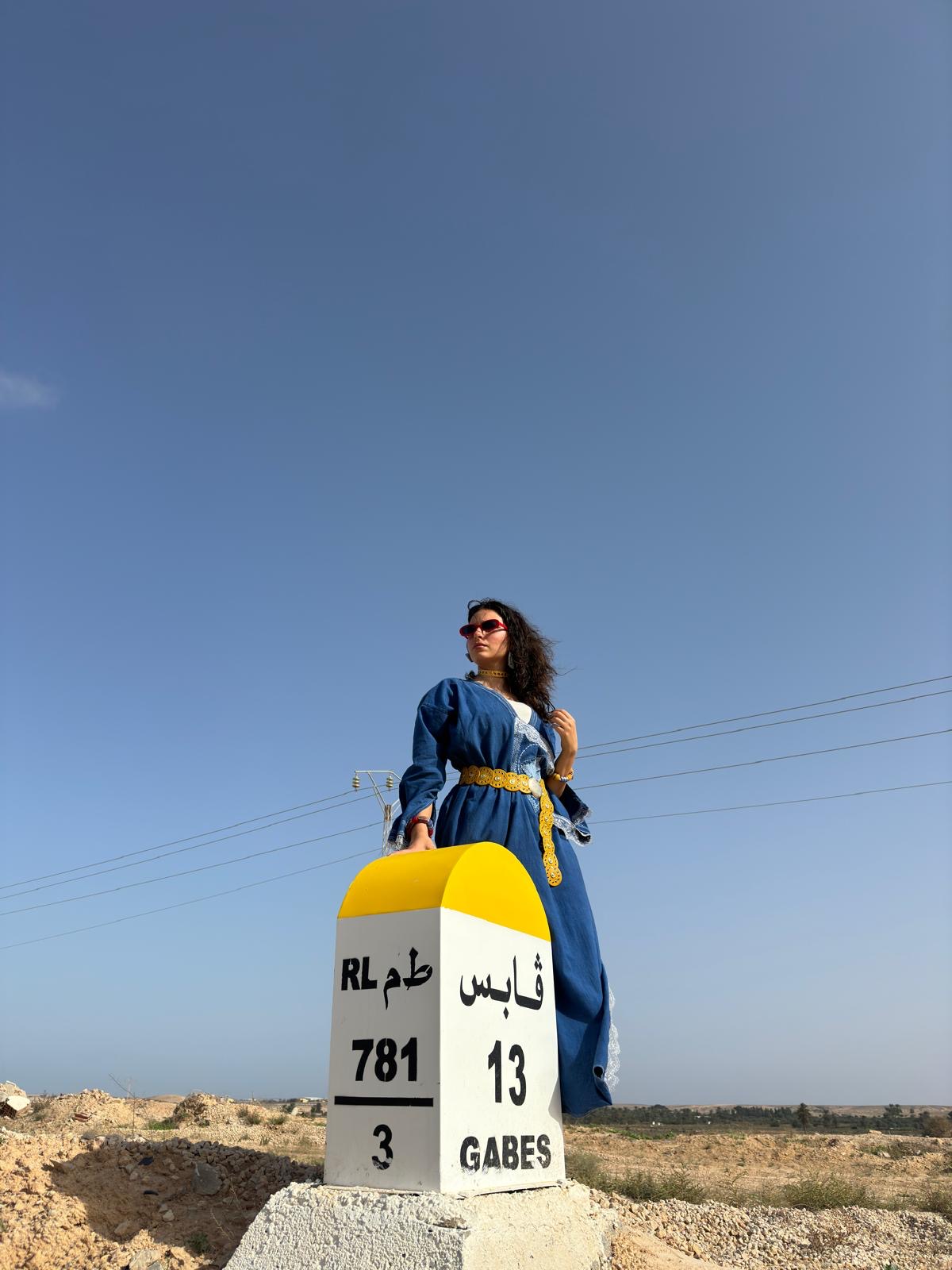
Noor Tagouri:
I love this question because I really think it’ll be of service. I think that, one, if you’re going to write a book proposal remember that it’s not the book and that there is a level of pressure that is put on you. When you realize that, you have to admit to yourself that you’re selling something and that you have to kind of ‘perform’ in a way and put your best foot forward so that you can have the best opportunity to bring this book into the world.
The second thing is that- anytime it comes to engaging with your own stories, things that you think that you already know - you can tell the story as it happened- but the more interesting thing is when you look under the hood of the memory of the experience and ask, where it exists in your body right now, how it’s influenced your life right now. That level of deep self-investigation, which is what the book is actually about, is pretty excruciating at times but; I do think that there is a way to make this pleasurable, and I think that that’s what I’m in the process of right now as I’ve transitioned into writing the actual book. I think that there’s a very, very fine line between pain and pleasure, and I want to just really integrate the notion that this process is now going to be pleasurable. I think that’s what people think, that to be a great artist you must suffer; suffering, pain, is yes... yes, pain is real; suffering is a choice in a way; suffering is the continuation of the pain after the pain has already begun. You don’t have to be hurting yourself to deliver great art and I feel like I’ve always done that- Every time I had the breakthrough, with REP, every time I turned the chapter, I’m like: ‘Oh, there’s a way for this whole thing to exist in that realm.’ And yes, there will be pain sometimes, but just know that it is possible. And that if you try to rewire your mind it doesn’t feel unfathomable, that delivering great art with the pain and love could be pleasurable. But I think that’s a superpower that I’m working to cultivate, and if you have a seed of that in you, I think it’ll transform whatever your book writing journey could potentially be.
Adam Khafif:
It feels very ceremonial, much like a lot of your stories and your storytelling style these days, which I feel like started more during Rep as your own definition of representation evolved. Every episode feels like a ceremony or a celebration of others as they are without judgment, and at the same time, while you’re celebrating others, you are going on a profound self-investigation, and you’re an investigative journalist by trade, but when or why did investigation transform from an external practice practice to an internal ceremony?
Noor Tagouri:
Are you proud of that one?
Adam Khafif:
I feel like I’m kind of knocking it out of the park.
Noor Tagouri:
You’re crushing this shi*. I will not be complaining to you about the terrible interview that I have with another journalist after this.
Ok so when did investigation turn from external to internal? I think that it was always internal and I think that it took me a while to admit to myself that that’s what I was doing.
I wish I would tell my younger self to recognize that and own up to it because it was part of the criticism that I got in my work as well. It was like: ‘why is she talking about her own story?’ And I realized, oh, I’m really creating a new approach to journalism and storytelling that is actually quite objective because I’m very transparent in why I’m telling the story, my personal experience that may be connected to this type of topic. It’s not like it takes over the story but I always like to say it up front because I want people to know why I care. So it’s always been about self-investigation, I think. That wasn’t until more recently, after REP, that I was like, ‘Oh, sh*t! I was doing that the whole time.’ And now I can literally write a book about self-investigation and teach it at a university.
Chapter 2, to come soon on jdeedmagazine.com
.png)

.png)
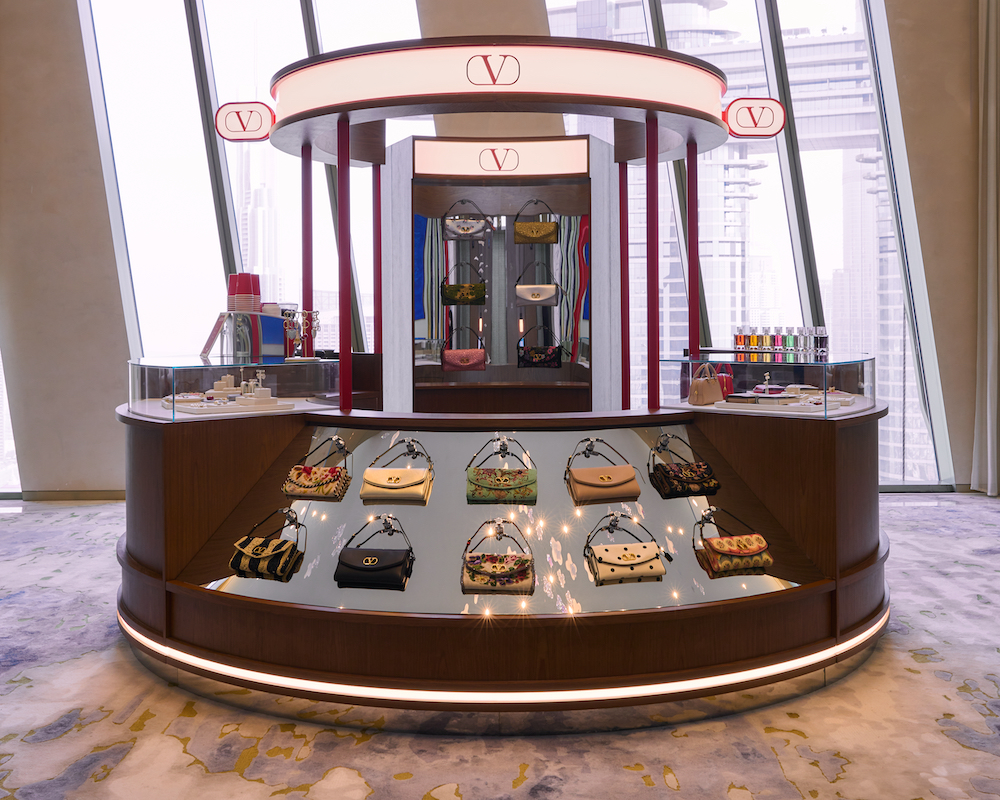
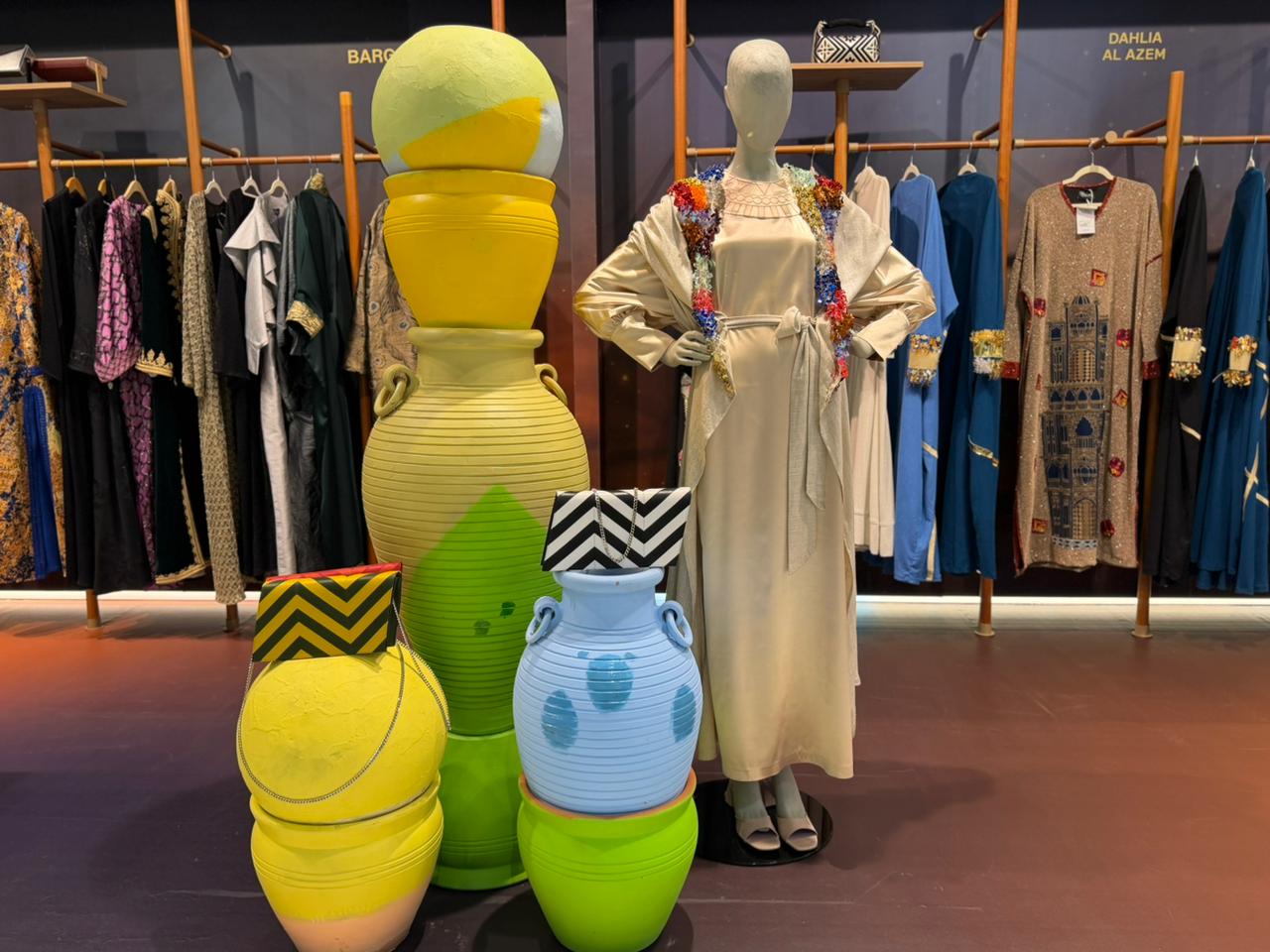
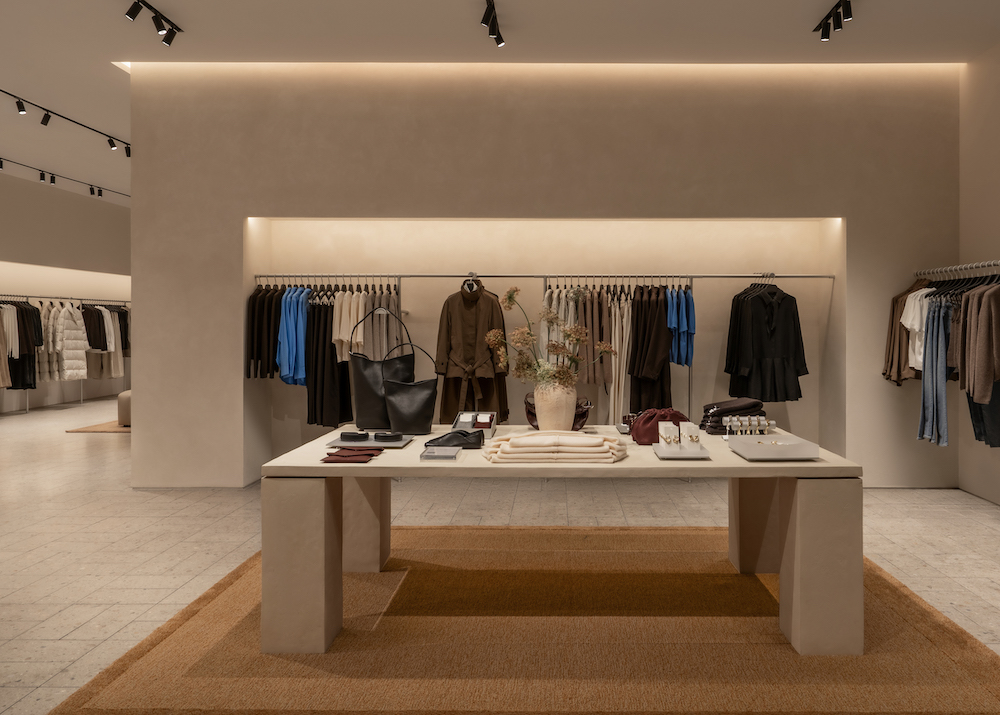

.png)